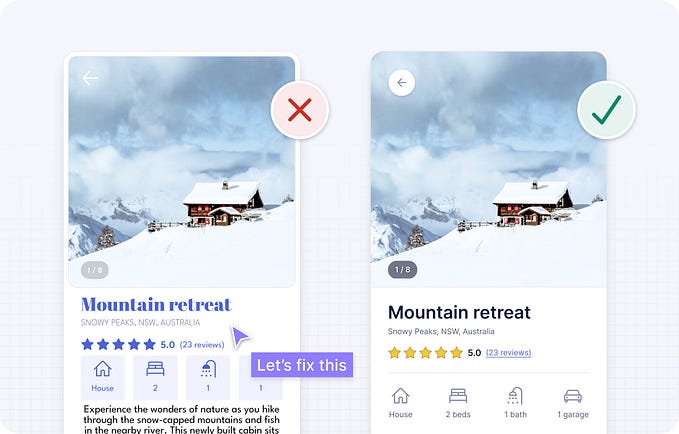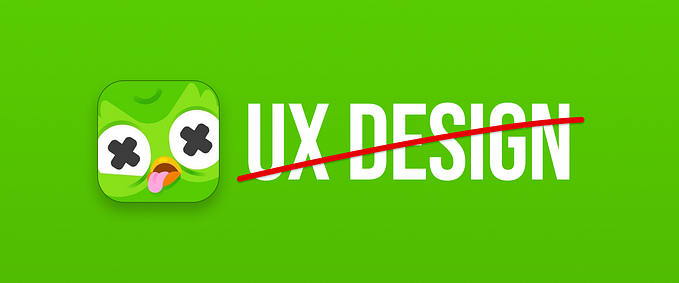5 habits to become a better UI+UX Designer

Last year has been revolutionary for my personal growth, I moved countries, started a new job and read plenty of books. In the process, I learned and established new habits that significantly improved my creativity and productivity. Let’s jump into the top 5 habits that I believe will benefit UX & UI designers at any stage of their career.
01. Sharpen your analogical problem-solving skills.
Why do this? It’s no secret that designers need to be ‘T’ shaped. The most excellent skill-set for a UX/UI designer is to solve problems with simple solutions. There has been enough research that implies that generalists are better at solving unique problems than specialists. The breadth of knowledge that a generalist acquires from different fields helps them take inspiration from other areas and think about a parallel solution for a problem. I recently read a book called ‘Range’ that expands on this and gives you enough scientific background that establishes this fact.
How do I do this? Unfortunately, there is no single tool that can enable this skill. Although there are a few habits that I found helpful for myself:
- Be curious and try to learn about new topics.
- Read books on various topics.
- Take beginner or intermediate courses on varied subjects.
- Collaborate with people from different backgrounds to learn about other fields regularly.
- Listen to podcasts on various subjects.
02. Get enough quality sleep.
Why do this? This point is just not for designers but for everyone. In a sleep-deprived world, people underestimate the value of good quality sleep. An abundance of sleep research establishes that sleep quality affects your brainpower. This also means that it directly affects your creativity. A ton of research-backed data has been provided by Matthew Walker in his book ‘Why we sleep, which has been recommended by people like Bill Gates.
How do I do this? Again, no single pill can give you a good quality sleep. I try to follow a few habits that I have built over time. These include:
- Switching off from devices an hour before bedtime.
- Not checking any devices for at least an hour after waking up.
- A cup of camomile tea an hour before bed.
- No caffeine after 5 PM.
- Include some form of physical exercise in your day.
Since everyone is different, this may not work for each of us. However, there are many other pieces of advice that you can find in the book ‘Why we sleep’ that you can follow and ensure a good quality sleep.
03. Practice. Practice. Practice.
Why do this? Most of us would have heard the phrase ‘Practice makes one perfect.’ But exactly how much practice was my question when I read the book ‘Outliers’ by Malcolm Gladwell. In the book, it has been stated that you need 10,000 hours of practice to be in the top tier of your field. The author has mentioned comprehensive studies and real-world examples to support the argument of the 10,000-hour rule.
How do I do this? Now, I do not consider myself in the top tier of my fields. But I have realised in my own experience that practising a new skill or a new tool does help in becoming better at it. This is because practising trains your mind to a level that the new skill gets embedded in your nature.
Here are a few tips to make practising effective and easy to do:
- Try to allocate at least two hours every day to the new skill.
- Practice in the morning before starting work and last thing before finishing your workday.
- Set small tasks to practice each day.
- Track your progress in a notebook.
- Test your abilities regularly by giving new challenges each time.
04. Find a place of solitude.
Why do this? I firmly believe that the most creative work happens in solitude. One thing that remote working has enabled me is finding time and space to do creative work in solitude. Being in solitude helps you focus quickly and get in a flow state. As Cal Newport mentions in his book ‘Deep Work’:
High-Quality Work = Time Spent x Level of focus.
You can read this fantastic book to get more insights into creating the right environment for deep work and getting the best work done in less time. Solitude not just boosts creativity; it also increases our productivity. You will be amazed by how much work you can finish in a small amount of time when you are in a state of flow.
How do I do this? I usually try to do most of my creative work in the morning. I try to find a place where I will not be disturbed. I try to do creative work for at least 3–4 hours a day. I allocate the rest of my time for meetings, emails and other activities that do not require deep focus. However, there are days when it doesn’t go as planned due to unforeseen things, which is perfectly okay.
Here are a few ways to create an environment that facilitates creative work:
- Turn-off email or Slack notifications
- Play subtle background music.
- 60 minutes of focussed work followed by 10 minutes of break.
- Drink coffee.
- Stay away from your phone.
5. Stop multi-tasking
Why do this? Yes, you read it right. Do not multi-task when you are trying to do creative work. As beautifully described by legendary psychologist Mihaly Csikszentmihaly in his book ‘Flow: The Psychology of Optimal Experience’, multi-tasking hinders going into the state of flow. Furthermore, juggling between different tasks reduces productivity and quality of work. Instead, try to do one thing at a time.
How do I do this? This one is relatively straightforward. Here are some quick tips to enable single-tasking:
- Write down tasks in order of priority.
- Break down tasks into sub-tasks to finish each sub-task in 60 minutes.
- Put on a timer for 60 minutes.
- Start working. Do not leave or move to another task until the first one is done.
- After 60 minutes, treat yourself to a 10-minute break and a snack.
Conclusion
These are just the top 5 habits that I feel help me the most in being at my best at work and even in my personal life. Do you have any habits or advice that you think you can add to the list? If yes, then drop them below in the comments.
Thanks for going through my experience. If you liked reading this article, send me some applauds and explore other articles. 👏🏻👏🏻👏🏻👏🏻
As always, you can connect with me over LinkedIn and see my work at www.shubhamkhatkar.com








